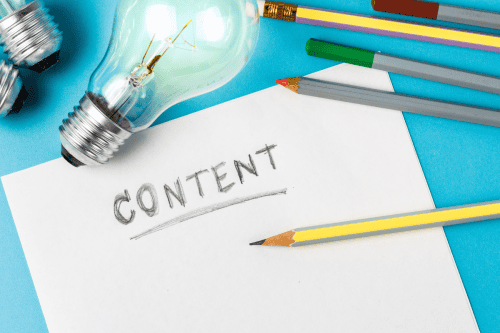Human decision making is faster than ever. When it comes to digital marketing and your website, attention spans are shrinking and options are endless, buyers make trust decisions in a snap. Studies show that website visitors form an impression in under three seconds. They decide almost instantly whether they trust your brand or whether they should click away and find another option. This is not about logic or rational analysis. It is an emotional response triggered by visual cues, brand signals, and subconscious heuristics.
What this means is simple. Trust is not negotiated. It is established or lost almost instantly. Your website is not just a digital presence. It is a psychological event.
Understanding how modern buyers assess trust will determine whether your site fuels conversions or leaks opportunity.
First Impressions Are Emotional, Not Analytical
Before a visitor reads a single sentence or compares your features to the competition, their brain searches for survival-based cues. Am I safe here? Does this feel credible? Does this brand seem like what I expected?
This instinctive system reacts before the logical mind gets involved. If your site passes this test, the visitor continues reading. If not, they bounce, even if your business is objectively the best solution.
Within three seconds, your site must signal:
- Professionalism
• Stability
• Relevance
• Familiarity
• Ease
If one of these is missing, the rest of your marketing will struggle to convert because it will never be seen.
Visual Design Is The First Trust Test
Whether users realize it or not, clean and modern design signals a healthy business. Outdated, cluttered, or generic design tells the opposite story. Buyers judge quality by aesthetics long before they judge it by words.
Trust-affirming design elements include:
- Generous white space that is not crowded or overwhelming
• High contrast and legible typography which is easy to skim and read
• Purposeful use of hierarchy that develops a clear flow of what matters most
• High production value with nothing feeling stock, templated, or neglected
• Fast loading, slow websites break trust before the design is even seen
Inconsistency is one of the strongest trust killers. A brand that looks premium on one page but amateur on another creates cognitive friction. Your branding must be unified across every page, image, font, and interaction.
Clarity Is More Powerful Than Cleverness
Buyers do not trust what they cannot understand. If your homepage forces them to interpret your value, you have already lost them.
Modern buyers expect immediate clarity. They want to see:
- What you do
• Who it is for
• What outcome you deliver
• How they can take action
This must be understood without scrolling or deciphering clever headlines. A strong primary statement above the fold is not optional. It is the anchor of trust because it eliminates doubt and confirms relevance.
Vague positioning feels risky. Clear positioning feels safe.
Familiarity Reduces Risk
Unexpected design choices may feel creative to you, but your visitor may experience them as uncertainty. Familiar is trusted. Confusing is abandoned.
This is why large brands do not reinvent navigation patterns. Clean horizontal menus, clear calls to action, and predictable scrolling are not boring, they are proven pathways that reduce cognitive strain.
Trust accelerates when:
- The navigation is obvious at a glance
• Buttons look like buttons, not “art”
• Pages load the way visitors expect
• There are no misaligned visual patterns that resemble spam or scam sites
Creativity has a place, but not at the cost of clarity or familiarity.
Trust Signals Must Be Instantly Visible
Social proof and authority matter, but most websites bury them. If your trust cues are not immediately visible in the top of the page, they will not have the impact they should.
High-performing sites feature:
- Recognizable client logos or media features that immediately validate credibility
• Review excerpts or star ratings which humanizes and validates greatness
• Years in business or number of clients served establishes concrete and measurable results
• Certifications, awards, or affiliations develops industry-level legitimacy signals
• Real photography should always be used over generic smiling stock models
Do not wait for users to scroll. Trust must be earned before interest can be held.
Speed and Interaction Shape Emotional Confidence
Technical performance is an emotional experience. A slow or glitchy site triggers distrust because users subconsciously associate friction with risk.
Trust-friendly technical indicators:
- First paint under one second
• No layout shifting or flickering
• Zero broken links or dead pages
• Smooth mobile performance without pinch-zooming
• Instant feedback on button clicks and form actions
People do not need to understand the technology to sense when something feels off. Modern buyers expect seamlessness, anything less feels unprofessional.
Tone Of Voice and Copywriting Matter More Than You Think
Even once your design and structure pass the initial trust filter, your tone of voice must continue the emotional resonance. Buyers respond to language that is confident yet grounded. Human but not casual. Specific but not overwhelming.
Avoid these mistakes that reduce trust:
- Overhyped claims that visitors have heard before
• Self-centred language filled with too much “we” instead of “you”
• Buzzword stuffing sounds like filler instead of substance
• Paragraphs that are too long signals effort, not ease
Trustworthy copy is conversational and solution-oriented. It answers the unspoken fears without exaggeration or desperation.
Read More: The Pyschology of Persuasive Copywriting, How To Convert Readers Into Customers
Micro-Commitment Pathways Lower The Barrier To Engagement
Modern buyers rarely convert on high-pressure or high-friction CTAs. They want options that match their readiness level.
Trust increases when you provide low-commitment choices such as:
- “Get a free consultation” instead of “Book now”
• “Download the guide” instead of “Start your project today”
• “See pricing examples” instead of “Request quote”
These pathways tell visitors you respect their process which creates a safer environment for action.
Trust Is Earned In Seconds But Strengthened Through Experience
The three-second rule gets attention but long-term trust is shaped by every click that follows. Every interaction either confirms or weakens their confidence.
Ensure your ongoing trust experience includes:
- Clear visual indicators of progress in multi-step forms
• No surprise pricing or hidden fees
• Consistent tone and meets-expectation delivery across all pages
• Navigation that gets easier, not harder, as users go deeper
Trust is not a single moment. It is a continuous series of postives. Your site must deliver them without fail.
If Your Website Is Not Built For Trust, It Is Working Against You
Many businesses unknowingly assume their traffic problem is marketing-related when in reality it is trust-failure at first impression. You may never feel the pain directly, but the numbers will quietly reveal it in bounce rates, low conversions, short session times, and muted engagement.
In today’s market where choice is abundant and first impressions are absolute, trust is not a feature, it is the foundation.
Read More: Is Your Website Losing Your Business Money? Here’s Why
You Have Three Seconds. Make Them Count.
Does your current site meet those tests? Does it telegraph authority, clarity, and ease instantly before the visitor has to think? If there is any hesitation in your answer, the cost is likely already showing up in missed opportunity.
If you want a website that earns trust before your competitors even load, reach out to Bush Marketing today. Let’s transform your first impression into your strongest sales advantage.








